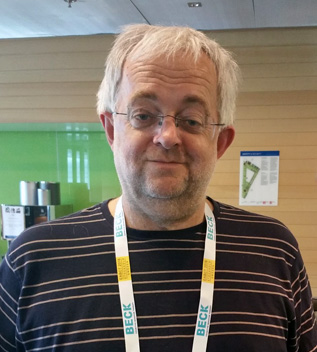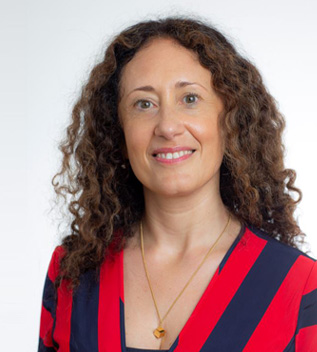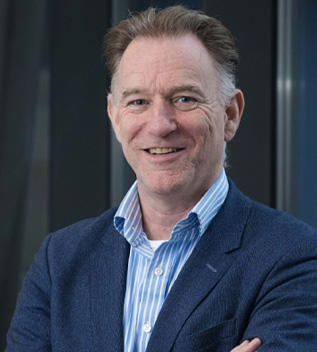Keynote speakers 2024
We are proud to present the following four keynote speakers for the NEDS Conference 2024 in Copenhagen, Denmark:
Professor Ulrike Schmidt
Ulrike Schmidt, PhD, FAED, is a British psychiatrist at the Institute of Psychiatry, Psychology and Neuroscience, King’s College London, where she is Professor of Eating Disorders and the Head of the Section of Eating Disorders. Schmidt is a consultant at the Eating Disorders Service within the South London and Maudsley NHS Foundation Trust.
She is known for her groundbreaking work helping people with eating disorders and their clinicians. Schmidt has won a National Health Service Innovation Award for the development of a computer-based self-help intervention for people with anorexia nervosa and their carers. She also received the King’s College London Graduate School Supervisory Excellence Awards for 2012–13. Her work has been highlighted in a Lancet profile on the King’s College London Eating Disorders Unit in early 2013.
Keynote: The Maudsley Model of Anorexia Nervosa (MANTRA): Underpinning evidence, efficacy and emerging adaptations
A good 20 or so years ago, when there were no anorexia nervosa (AN) specific treatments available for adults, we started developing the Maudsley Model of Anorexia Nervosa Treatment for Adults (MANTRA). We wanted this to cater for people with a broad range of severities, complexities and comorbidities. The aim of MANTRA was and is to help people recover physically and emotionally and – in the words of one of our patients – to ‘get a bigger life’, i.e. to develop a flourishing non-anorexic self. MANTRA is based on a cognitive-interpersonal model.
This model – and the associated therapy – continue to evolve and be refined in an iterative process, integrating the wisdom and creativity of our clinical colleagues, patient and carer ideas and preferences, and taking into account new research findings.
In my talk I will first describe the model and associated therapy. I will then present some of the available data and I will finish on emerging adaptations such as MANTRA for adolescents, for group settings and for relapse prevention.
Professor Glenn Waller
Glenn Waller, PhD, FAED, Professor at the University of Sheffield, is a Chartered Psychologist and an expert in eating disorders. His research interests include the thought processes behind the conditions and ways to treat them. His research and clinical work are focused on cognitive models of eating disorders and their treatment. He has a particular interest in the effectiveness of CBT – how the results of research trials can be matched by clinicians working in routine clinical settings.
Waller has served on the NICE guideline development group that updated the NICE eating disorder guideline. He is Associate Editor for the International Journal of Eating Disorders and sits on the Editorial Boards of several other publications. Glenn Waller is a Fellow and former president of the Academy for Eating Disorders and a founding member of the Eating Disorders Research Society.
Keynote: Exposure therapy for eating disorders (and why clinicians do not do enough of it)
Exposure therapy is a clinical approach that is traditionally associated with effective treatment of anxiety-based disorders, either in isolation or as a part of cognitive-behavioural protocols. However, there is substantial evidence that exposure therapy is a key element of effective therapies for eating disorders. This approach includes teaching patients to cope with their anxiety about eating, fear of uncontrollable weight gain, food distaste, emotional and interpersonal experiences, “habit-based” binges, and body image.
Furthermore, exposure therapy itself has undergone a big transformation in the past 20 years, with the development of inhibitory learning models of exposure to accelerate and deepen safety learning. And yet, with all of these potential benefits, clinicians rarely use exposure therapy appropriately when working with eating disorders (or anxiety disorders).
This keynote will outline how exposure therapy can benefit those with the full range of eating disorders in all clinical settings but will also consider the factors that stop clinicians from using it – personal anxiety and safety behaviours in working with eating disorders; poor understanding of exposure therapy; team dynamics; service-level decisions; and more. Training, supervision, role plays and exposing clinicians to using exposure will all be recommended as routine parts of clinical practice with eating disorders.
Sometimes, the evidence is already under our noses.
Professor Nadia Micali
Nadia Micali, PhD, MD, MRCPsych, FAED, is Head of the Research Unit of Eating Disorders at Psychiatric Center Ballerup and a Professor at the Department of Clinical Medicine at Copenhagen University, Denmark. She leads a research lab focusing on risk factors, neurobiology, and treatment of feeding and eating disorders. She is also an Associate Professor at the Great Ormond Street Institute of Child Health, UCL, London.
In the last 15 years, Nadia Micali’s research has focused on understanding biological and intergenerational risk for eating disorders using a developmental perspective. The impact of her research is underscored by her role as associate editor of top journals in the field. She has several research collaborations across Europe and the US.
She currently serves as a board member and former President of the Eating Disorders Research Society and has previously served on several Academy for Eating Disorders committees.
Nadia Micali is a Fellow of the Academy for Eating Disorders.
Professor Eric van Furth
Eric van Furth, PhD, FAED, is Clinical Director of the Rivierduinen Eating Disorders Ursula in Leidschendam – the oldest and largest specialized treatment program for patients with eating disorders in the Netherlands – and Professor of Eating Disorders at the Department of Psychiatry, Leiden University Medical Center (LUMC), the Netherlands. He is also a member of the Board of Trustees of Karakter Child and Adolescent Psychiatry and President of the Dutch Academy for Eating Disorders (NAE).
Dr. van Furth is a clinical psychologist and psychotherapist specialising in family therapy. He has been working clinically with patients with eating disorders for 30 years.
He has served as the Chair of the Dutch multidisciplinary treatment guideline workgroup on eating disorders (2004–2006) and is a Fellow and former President of the Academy for Eating Disorders.
Keynote: The need for e-health
The current service delivery model of mental health is not future proof. Among other factors, there is an ever-increasing demand for mental health treatment in the community and a decrease of available mental health professionals. E-mental health is promising because it is scalable and may reach individuals in the developing stages of their mental disorder, thus potentially preventing full-blown treatment ever being needed.
The potential reach of e-mental health is still in its infancy and research needs to establish its effectiveness and cost-effectiveness. Fifteen years ago we developed the e-community Proud2Bme, a platform by and for individuals with eating problems and eating disorders. Proud2Bme offer daily interactive moderated group chats and a forum where questions can be posed to someone with a lived experience, a dietician and a psychologist. One step up in the treatment ladder is Featback. Featback is a small anonymous e-health intervention for eating disorders. The results of two large RCT’s with Featback will be presented both on effectiveness and cost-effectiveness. Lessons learned from these trials will be discussed.




